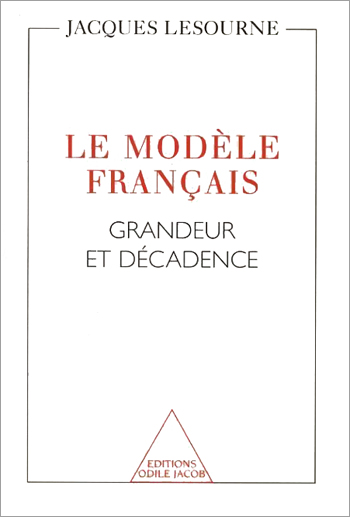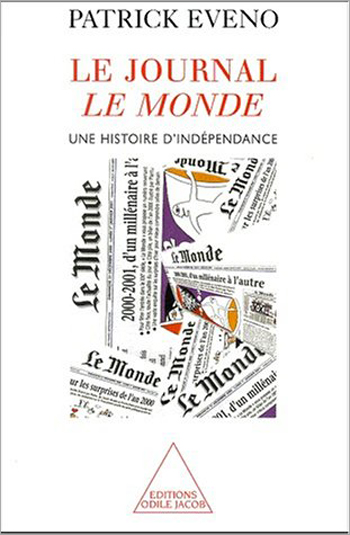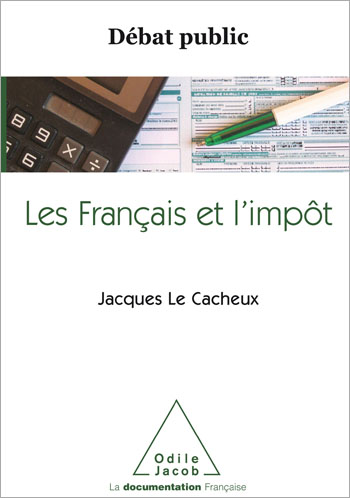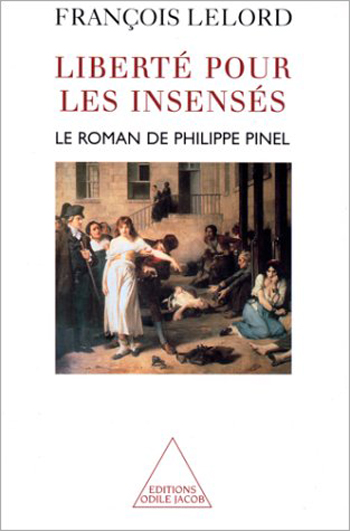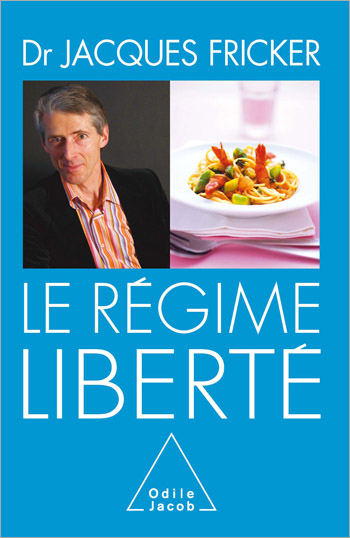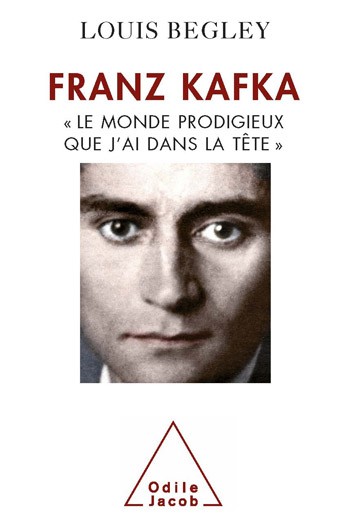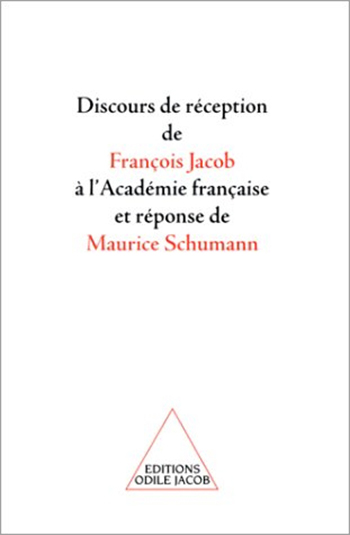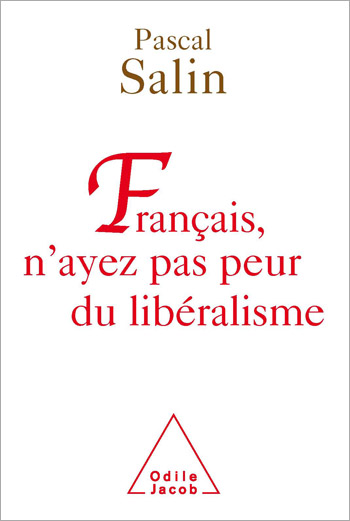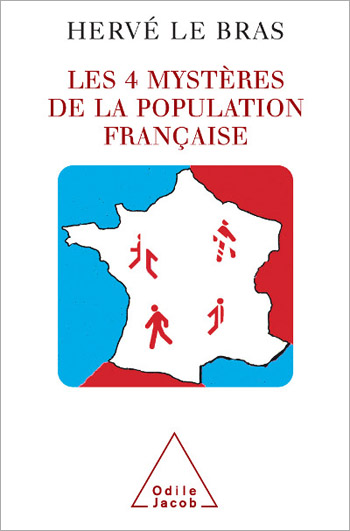Catalog All books
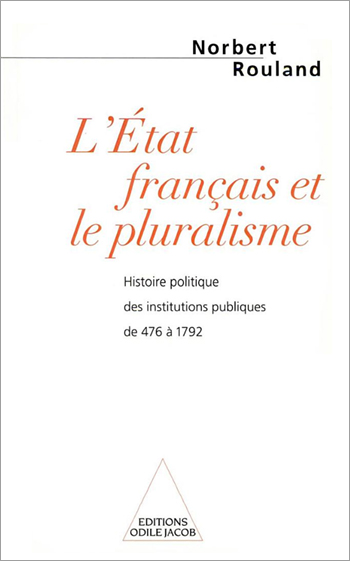
Norbert Rouland
The French State and Pluralism A Political History of Public Institutions from 476 to 1792
Has France become a multicultural society? Are we heading towards a dislocation of French unity, or a more advanced form of democratic life due to this pluralism? Can we invoke the French tradition which has given us several reference points? These are the serious questions which History must confront, and it is the aim of this history of public institutions to do just that. The author shows that the French State has constructed the Nation through a stronger voluntarist policy than found in most other Western European countries. His clear yet detailed style makes this book accessible to a wide readership, both those wishing to know more about the origins of our current political regime, and also to first year students, to whom this work represents a source of valuable information.
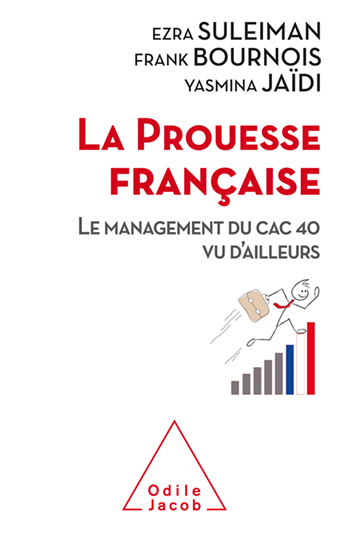
Ezra Suleiman, Yasmina Jaïdi, Frank Bournois
The French Prowess Management, French-style
More than 2,500 foreign executives from 20 CAC 40 companies were interviewed for this broad survey of French management. The extent of this analysis is the key to the richness of the book. Concrete advice for executives and directors of human resources to improve their management style.
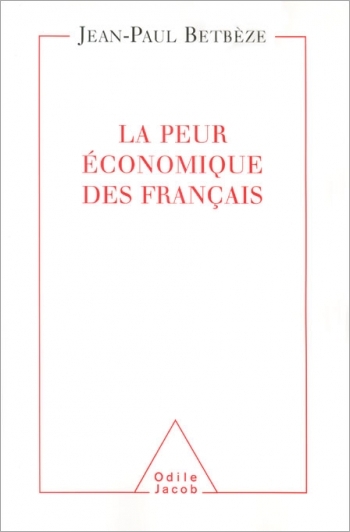
Jean-Paul Betbèze
French people's economic fear
France has economic possibilities, but it remains blocked in several areas. Although the country's leaders are aware of this, they seem unable to make the necessary reforms to move forward. France seems to be the prey of fears that paralyse it, but which have benefited a new class of economic as well as social rentiers who constitute a powerful economic, ideological and political group. These new rentiers are fully cognisant that the defence of their acquired privileges is not a practical long-term solution - as has been shown by rising deficits, decreased competitiveness and job losses. The author argues that it is necessary to make changes and implement reforms - and to do so it is essential to understand and overcome existing fears. It cannot be expected that everything will be changed at once, but some initial efforts must be made. The single reform that will fix everything does not exist, he says, but this is hardly an excuse for refusing to make a start. In other countries, programmes for economic reform are being implemented. Yet France is only beginning to consider such reforms. The object of this book is to provide a greater understanding of the present situation, in the form of a how-to manual. A ruthless analysis of some of France's psychological blocks, apprehensions and economic fears, this book can be regarded as a sort of economic psychotherapy. In addition, the author provides a critique of the false solutions that hinder modernisation and proposes his own solutions for change and reform. Jean-Paul Betbèze is a professor of economics at the University of Paris Panthéon-Assas and a member of the French prime minister's Council for Economic Analysis. He is a consultant to the president and the C.E.O. of a major bank and the author of Les Dix Commandements de la finance, which was awarded the Risques-Les Echos Prize in 2004.
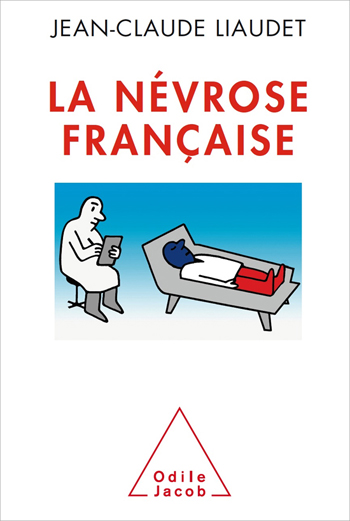
Jean-Claude Liaudet
The French Neurosis
A psychoanalyst examines France’s collective neurosis and asks: Can the patient be cured?
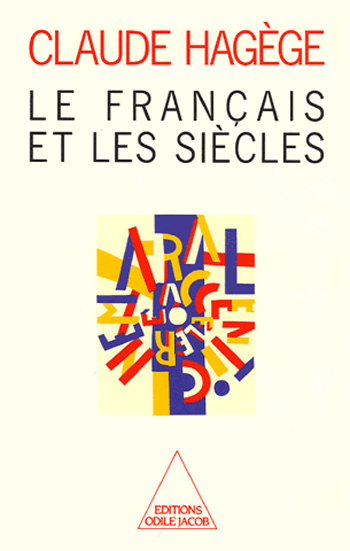
Claude Hagège
The French Language and the Centuries
Claude Hagege illustrates how the internal purity of the French language, less endangered than one might think, has been pushed aside in favor of its external promotion, less real than one might imagine. He increases our awareness of a major reality of the times. The French language is no longer the exclusive property of France; it has become an international affair. Claude Hagege is a professor at the Collège de France.
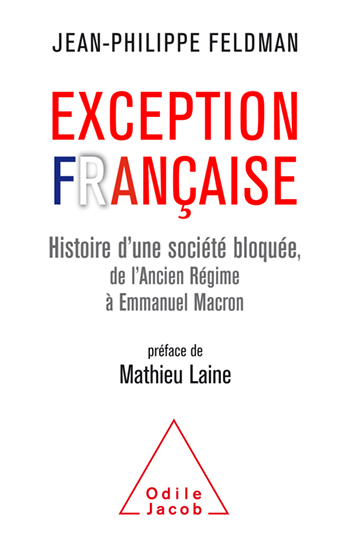
Jean-Philippe Feldman
The French Exception From the Ancien Régime to Emmanuel Macron, the story of a blocked society
Abundant historical documentation used to address a current issue and a very heated polemical debate.
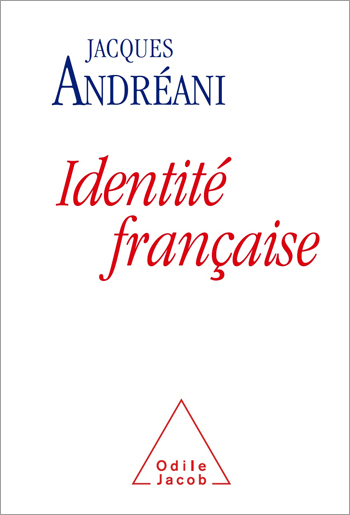
Jacques Andréani
The French Exception
An expert on foreign affairs, Jacques Andréani draws on his extensive international experience to enhance his examination of what it means to be French.
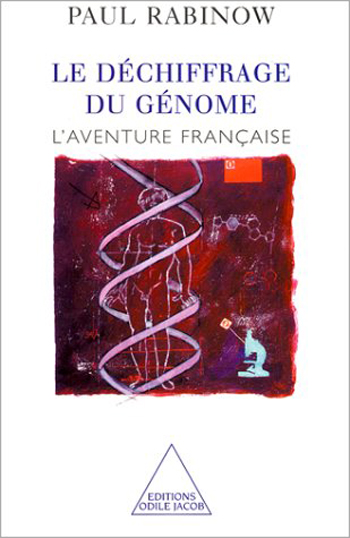
Paul Rabinow
French DNA: Trouble in Purgatory
This book offers some surprising viewpoints: an anthropologist tells the story of the human genome sequencing project; a scholar of the humanities follows the crisis between a French laboratory, the Centre dÉtude du Polymorphisme Humain (CEPH), and a U.S. rival; an American intellectual describes the politics within the French scientific community. This exceptional survey of the most recent research trends and of the state of international competition in the field of genetic research gives us a notion of how our future health care is being prepared. Paul Rabinow teaches anthropology at the University of California at Berkeley.

Maurice Vaïsse
French Diplomacy Tools and Participants Since 1980
A complete and documented view of the Ministry of Foreign Affairs and of French diplomatic policy. A diplomatic history of the Fifth Republic, from the 1970s to the present.
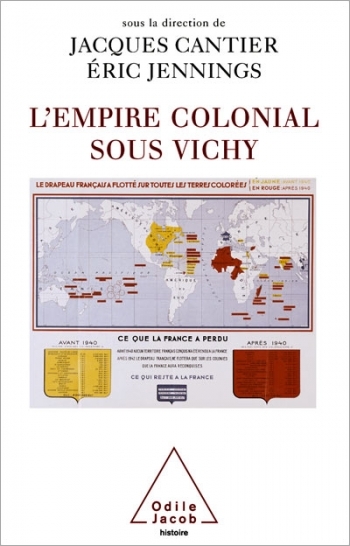
Jacques Cantier, Éric Jennings
The French Colonial Empire under Vichy
In the 1990s, historians began studying the Vichy government in the French colonial empire. The articles gathered here by Jacques Cantier and Eric Jennings are the outcome of recent exchanges among historians on the subject. The book reflects the writers' various research interests and includes: an examination of the political decision-making process, the composition of governing bodies, the development of institutions to strengthen government control of society, and the reaction of the local population to the new political measures. The editors' purpose is dual. First of all, the colonial mirror serves to elucidate the underlying logic and the workings of the regime that resulted from the French defeat. Secondly, the editors have sought to place the Vichy period into the wider context and more extended time frame of colonial history and decolonisation. They have done this by structuring their analysis of Vichy in the empire into several sections. The first part of the book examines the conditions under which the Vichy government tried to unite the colonial bloc to mainland France. The second part analyses Vichy's authoritarian policies, particularly those that aimed at controlling youth. The large demonstrations that took place in Vichy Algeria in 1941 illustrate the efforts undertaken to showcase the National Revolution in Algeria. The third part studies the different forms of repression exercised by the regime, particularly the conditions governing the application of anti-Semitic legislation in the empire, the stifling of the Masons, and the existence of internment camps in North Africa. The fourth part reveals the tactics used by the European and colonial elites in French West Africa (Afrique Occidentale Française) to preserve their influence. The Vichy legacy is examined in a final section, which provides both an overview of the situation in the empire as a whole and a detailed analysis of the telling example of Madagascar. This is a unique and highly innovative study by eminent historians of a little-known aspect of French colonial history during the Vichy period. Jacques Cantier is a lecturer at the University of Toulouse-Le-Mirail, France. He is the author of L'Algérie sous le régime de Vichy and Jules Roy: l'Honneur d'un rebelle. Eric Jennings is an assistant professor at the University of Toronto, Canada. He is the author of Vichy in the Tropics.
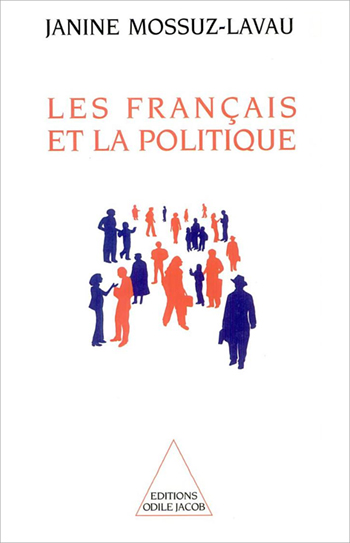
Janine Mossuz-Lavau
The French and Politics An Investigation of a Crisis
Are the French really discouraged and depoliticized? Janine Mossuz-Lavau decided to go into the field, to interview the people and give them a voice. What are they suffering from? What do they want? What do they believe in? These are the questions that she attempts to answer after having questioned men and women of all ages and social backgrounds, from all regions and personal affinities. Political analyst Janine Mossuz-Lavau is a Research Director at CNRS and the National Foundation of Political Science.
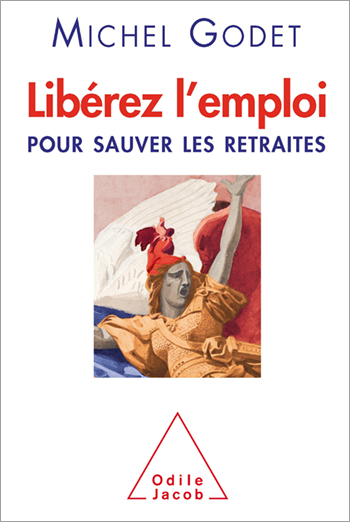
Michel Godet
Freeing the Job Market
Unemployment in France can be brought down to 5%. Michel Godet’s method shows how to ‘free the job market’
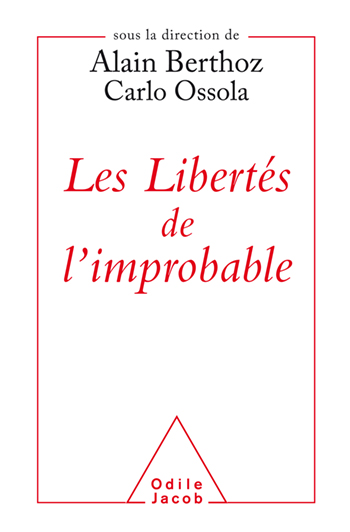
Alain Berthoz, Carlo Ossola
The Freedoms of the Improbable
A dozen high-level international researchers for a multidisciplinary approach to the improbable, a powerful factor of creativity in between the possible and the impossible.
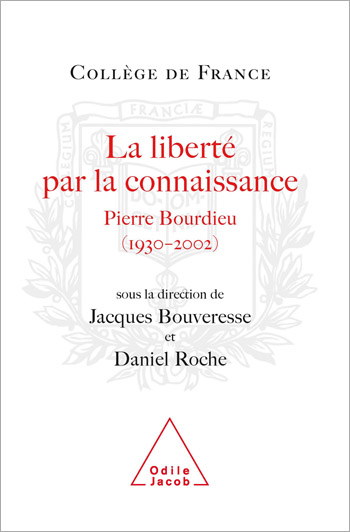
Jacques Bouveresse, Daniel Roche
Freedom Through Knowledge: Pierre Bourdieu, 1930-2002 (Travaux du Collège de France)
Gathered in this volume are the texts of lectures given in memory of Pierre Bourdieu at an international colloquium held on 26-27 June 2003 and jointly organised by the Collège de France and the Ecole Normale Supérieure, with the backing of the Hugot Foundation.

Michel Pinault
Frédéric Joliot-Curie
This is the first biography of Frédéric Joliot-Curie, the founder of French nuclear research and winner of the Nobel Prize for Chemistry in 1935. For many, he represents the political commitment of French intellectuals in the struggle against Fascism in the twentieth century. His life illustrates the transition from traditional science, limited to the world of academia, to Big Science, with major national and international repercussions. Michel Pinault holds an agrégation and a doctorate in history from the University of Paris I.
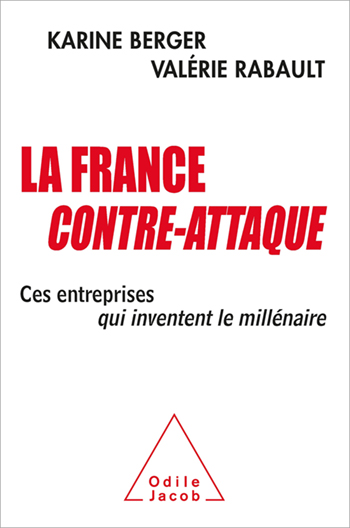
Karine Berger, Valérie Rabault
France Strikes Back For a More Competitive France
How can France recover its status as one of the world’s five most competitive nations?
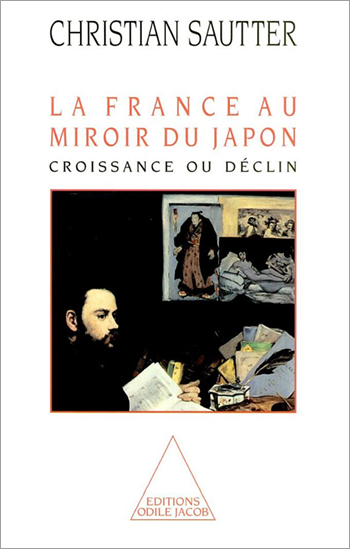
Christian Sautter
France Reflected in Japan Growth or Decline
Where does the formidable Japanese resistance to unemployment come from? How can their persistence be explained when Japan, like all developed countries, is faced with robotization, technological revolutions and, more recently, competition in the form of young populations in neighboring countries? This should give France pause for thought: as starkly contrasted as these two cultures may seem, France and Japan are sister countries. Thus reflected in the mirror of Japan, France can discover that its decline need not be fatal, and that it is up to France to break with a decrepit conservatism and embrace growth. Christian Sautter is the director of studies at the Ecole des hautes etudes en sciences sociales (EHESS).
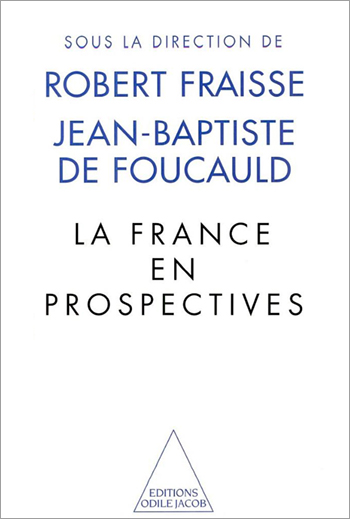
Jean-Baptiste de Foucauld, Robert Fraisse
The France of the Future
What will France be like in twenty years ? Faced with the fear of the future, with the current unease and confusion of French citizens, we need to change the way we look at things. We must stop asking ourselves about individualism in our society and look for answers to the mounting solitude. Stop theorizing about immigration problems and find the keys to demographic evolution. Stop fearing the invasion of the immaterial and start looking for the the new social fabric of tomorrow. We must suggest some possible plans of action and thought processes, provide some sketches of tomorrow's France, among the risks and hopes, to get some new perspectives.
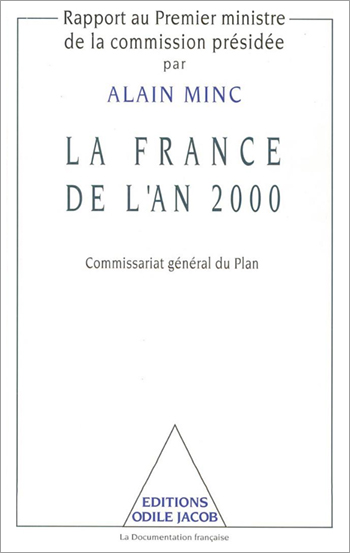
Alain Minc
France in the Year 2000
What are the biggest challenges of the year 2000? What great economic and social actions will France have to take in the years to come? The answer: assuring growth without inflation capable of favoring employment; making the state-providence more efficient, and adapting its productive system to the internationalization of trade. Edouard Balladur asked Alain Minc to address these key problems of French society and this work, an instant classic, will provoke reflection from a wide array of different personalities. A co-publication with La Documentation Francaise.

Jean-François Sirinelli
France in an Age of Major Upheaval 1962-2017
A look at France’s recent history by an historian attempting to define a consistent theme and perhaps also paint a picture of what the future may have in store.
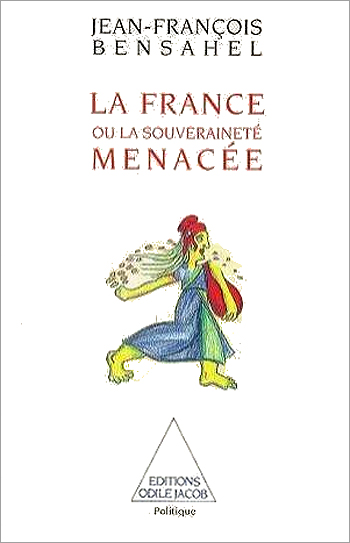
Jean-François Bensahel
France and Threatened Sovereignty
What may one hope for from a united Europe? What will be the future of France? Discouraging of both European illusions and those myths of the 1980s, the money-king and the triumphant individual, this work provides an indispensable reflection on how to tackle the difficult years ahead, to avert the explosive risks that weigh heavily on society and restrict the actions of the French State. Jean-François Bensahel, an ex-student of L'Ecole Normale Superior and the Ecole de Mines, holds a graduate degree in mathematics and is a high-level functionary.
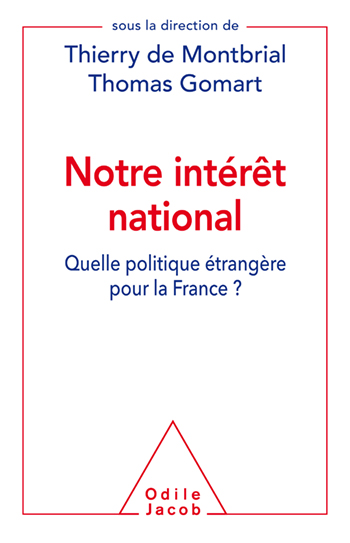
Thierry deMontbrial, Thomas Gomart
France and the National Interest Is France’s foreign policy still guided by our own interests?
Fundamental to the upcoming presidential elections in the context of war in the Middle East and Africa, and of domestic insecurity. The book will be supported and promoted by the IFRI (Institut français de relations internationales).


